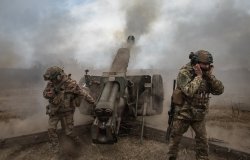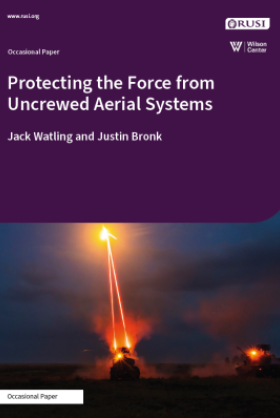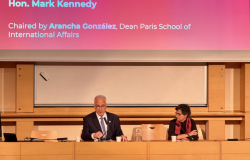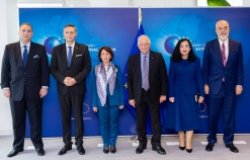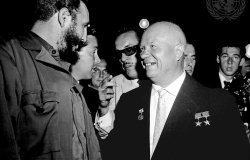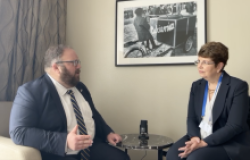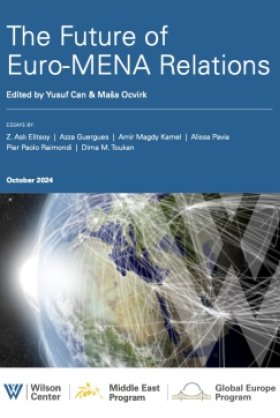The Ultimate Test for NATO (September 2001)
The September 11 attack on the United States constitutes the ultimate challenge for NATO. It is a test of allied unity and of the continued viability of the alliance itself. Thus far our collective response has been encouraging. War against terrorism has been recognized as the great shared purpose of the West. Just as resistance to communism brought the U.S. and the Europeans together during the Cold War, this attack on America has reaffirmed our core shared values and interests. From now on, the Balkan peacekeeping operations or NATO enlargement plans in the name of institution building and democratization can no longer be the principal focus of allied policy. Now we face the challenge of transforming our shared outrage into a long-term enduring NATO strategy.
NATO's core mission today is to organize and lead the defense of the shared values of the democratic West, as expressed in Article 2 of the Washington Treaty. By issuing a strong statement of support and by invoking the collective defense provision under Article 5, the North sent a message that the West would stand together in the struggle against terrorism. The question is how far America's allies will go in supporting direct American action, and if they will stand with us no matter what setbacks we may suffer down this road.
First and foremost, the leaders of the Western alliance must make it clear that it is NATO, rather than solely the United States, that is at war against terrorist networks and the states that support them. Practical steps must be taken—including an all-out commitment of European intelligence and police agencies, their communication networks and their military capabilities—for joint action with the United States. The leaders of NATO countries must prepare their citizens for the consequences of NATO attacks against terrorist networks, including the inevitable attempts by terrorists to strike back.
It also is imperative to lay aside diplomatic differences between the U.S. and the Europeans in our dealings with other countries, especially with the Russian Federation. The critical challenge facing NATO today is to re-evaluate our relationship with Russia as a potential partner in the war on terrorism. For NATO to stage operations against the Tailban and Osama bin Laden's networks, it needs a strong base in the region. Russia's cooperation with NATO is essential in that regard, considering its geostrategic location, its influence in the post-Soviet region of Central Asia, and its shared vulnerability to Islamic extremism.
In recent years American and European policy toward Russia diverged, reflecting different national agendas and priorities. These differences must be set aside if NATO is to devise an effective strategy for cooperating with Russia in our war on terrorism, while ensuring that our strategic interests in central Europe are not compromised. There are signs already that a new NATO-Russia relationship is in the making. On September 13 the NATO-Russia Permanent Joint Council announced the plan to intensify cooperation under the NATO-Russia Founding Act to defeat terrorism.
America and its allies face a challenge today the magnitude of which is not unlike that of the struggle against communism during the Cold War. It is not a struggle that lends itself to ambiguous compromise solutions, nor will it be won through retaliatory strikes alone. To prevail, NATO must be proactive and persistent until the threat is eliminated. This requires that the trans-atlantic community devise a consensus on strategy and an unshakable commitment to implement it.
NATO's actions in the coming months will either revitalize the alliance, or make it irrelevant to this new security environment.
About the Author
Andrew Michta
Mertie Willigar Buckman Professor of International Studies, Rhodes College

Global Europe Program
The Global Europe Program is focused on Europe’s capabilities, and how it engages on critical global issues. We investigate European approaches to critical global issues. We examine Europe’s relations with Russia and Eurasia, China and the Indo-Pacific, the Middle East and Africa. Our initiatives include “Ukraine in Europe” – an examination of what it will take to make Ukraine’s European future a reality. But we also examine the role of NATO, the European Union and the OSCE, Europe’s energy security, transatlantic trade disputes, and challenges to democracy. The Global Europe Program’s staff, scholars-in-residence, and Global Fellows participate in seminars, policy study groups, and international conferences to provide analytical recommendations to policy makers and the media. Read more


